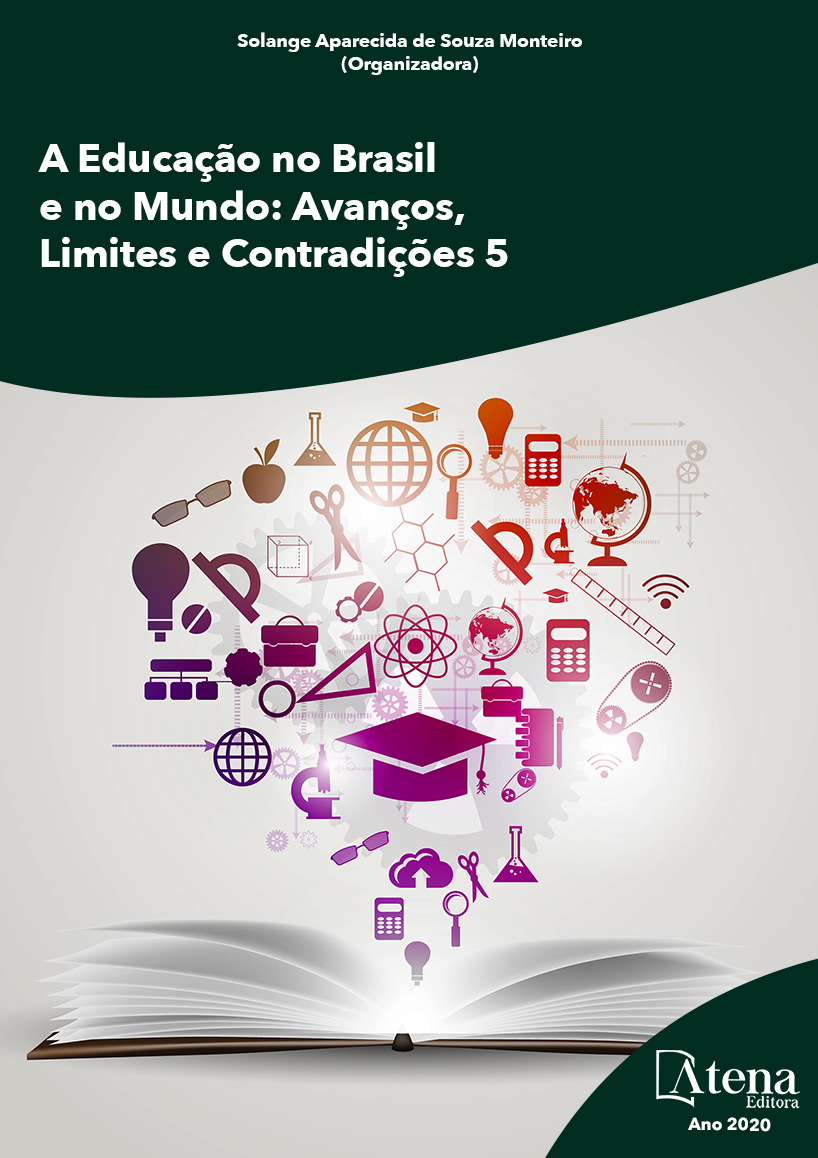
NAS SAIAS DE IEMANJÁ VOZES E SABERES POÉTICOS DO FEMININO NA EDUCAÇÃO SENSÍVEL UMBANDISTAS NA AMAZÔNIA
Este estudo, vinculado ao Programa
de Pós-Graduação em Educação, Linha de
Pesquisa de Saberes Culturais da Amazônia,
da Universidade do Estado do Pará, emergiu
da seguinte problemática: Como as dimensões
simbólicas e poéticas do feminino contidas em
narrativas do mito de Iemanjá na Umbanda
podem contribuir para a Educação Sensível de
filhas e filhos da Orixá? A perspectiva teórica
de análise dos dados coletados baseia-se em
Bachelard (1989), Cabrera (2004), Campelo
e Luca (2007), Castoriadis (1982), Duarte
Júnior (2001), Eliade (1991; 2016), Ferreira
(1994-95), Halbwachs (2004), Maffesoli (1998),
Ortiz (1999), Prandi (2001), Salles (2005),
Boaventura Santos (2010), Silva (2015),
Thompson (1995), Verger (2012) e Zumthor
(2010), ajudou compreender sobre memória,
cultura e educação sensível fora do espaço
escolar e elucidar experiências religiosas
como fenômenos culturais, considerando
uma ciência que valorize o senso comum e
os saberes marginalizados historicamente:
o mítico, o poético, o feminino e os da
tradição oral afrodescendente na Amazônia. A
pesquisa de campo qualitativa, de abordagem
etnometodológica (WATSON; GASTALDO,
2015), fez uso do método das poéticas
orais (FARES; PIMENTEL, 2014), a partir
da observação participante e de entrevistas
narrativas. Teve como sujeitos filhas e filhos da
Sagrada Orixá Iemanjá que participam como
membros de Umbanda, pretendeu ao ouvir
suas narrativas sobre a Grande Mãe, tecer uma
análise que torne possível a “mediunização”
entre o terreiro e a academia, na perspectiva
de contribuir na superação da visão dual do
pensamento moderno que separa sensibilidade
e racionalidade e, assim, deflagrar, para além
dos terreiros, vozes urdidas e silenciadas
historicamente.
NAS SAIAS DE IEMANJÁ VOZES E SABERES POÉTICOS DO FEMININO NA EDUCAÇÃO SENSÍVEL UMBANDISTAS NA AMAZÔNIA
-
Palavras-chave: Educação Sensível. Iemanjá. Feminino. Poética Oral. Amazônia.
-
Keywords: Sensitive Education. Iemanjá. Female. Oral Poetics. Amazon
-
Abstract:
This study, linked to the Post
Graduation Program in Education, in the
research line Cultural Knowledge of Amazon, of the Universidade do Estado do Pará,
emerges from the following problematic: How the symbolic and poetic dimensions of the
feminine, contained in narratives of the myth of Iemanjá in Umbanda, can contribute to
the sensitive education of daughters and sons of the Orixá? The theoretical perspective
that helped in the analysis of the collected data and in the elaboration of the thesis are
Bachelard (1989), Cabrera (2004), Campelo e Luca (2007), Castoriadis (1982), Duarte
Júnior (2001), Eliade (1991; 2016), Ferreira (1994-95), Halbwachs (2004), Maffesoli
(1998), Ortiz (1999), Prandi (2001), Salles (2005), Boaventura Santos (2010), Silva
(2015), Thompson (1995), Verger (2012) e Zumthor (2010) who will help to understand
memory, culture and sensitive education outside the school space and to elucidate
the religious experiences as cultural phenomena, considering a science that enriches
the comum sense and historically marginalized knowledge: the mythical, the poetic,
the feminine and those from the Afrodescendant oral tradition in Amazon. The field
research qualitative of ethnomethodological approach (WATSON; GASTALDO, 2015)
used the oral poetic method (FARES; PIMENTEL, 2014) from participant observation
and narrative interviews. It had as subjects daughters and sons of the Sacred Orixá
Iemanjá and those who participate as members of Umbanda, intend just listening to
its narratives about the Great Mother, to make an analysis that makes possible the
"mediumshipness" between the sacred space of the terreiro and the academy, with
the perspective of contributing to overcoming the dual vision of modern thought that
separates sensibility and rationality and thus to trigger, beyond the terreiros, voices
historically deformed and silenced.
-
Número de páginas: 13
- Denise Simões Rodrigues
- Lívia Cristina Fonseca De Araújo Faro


